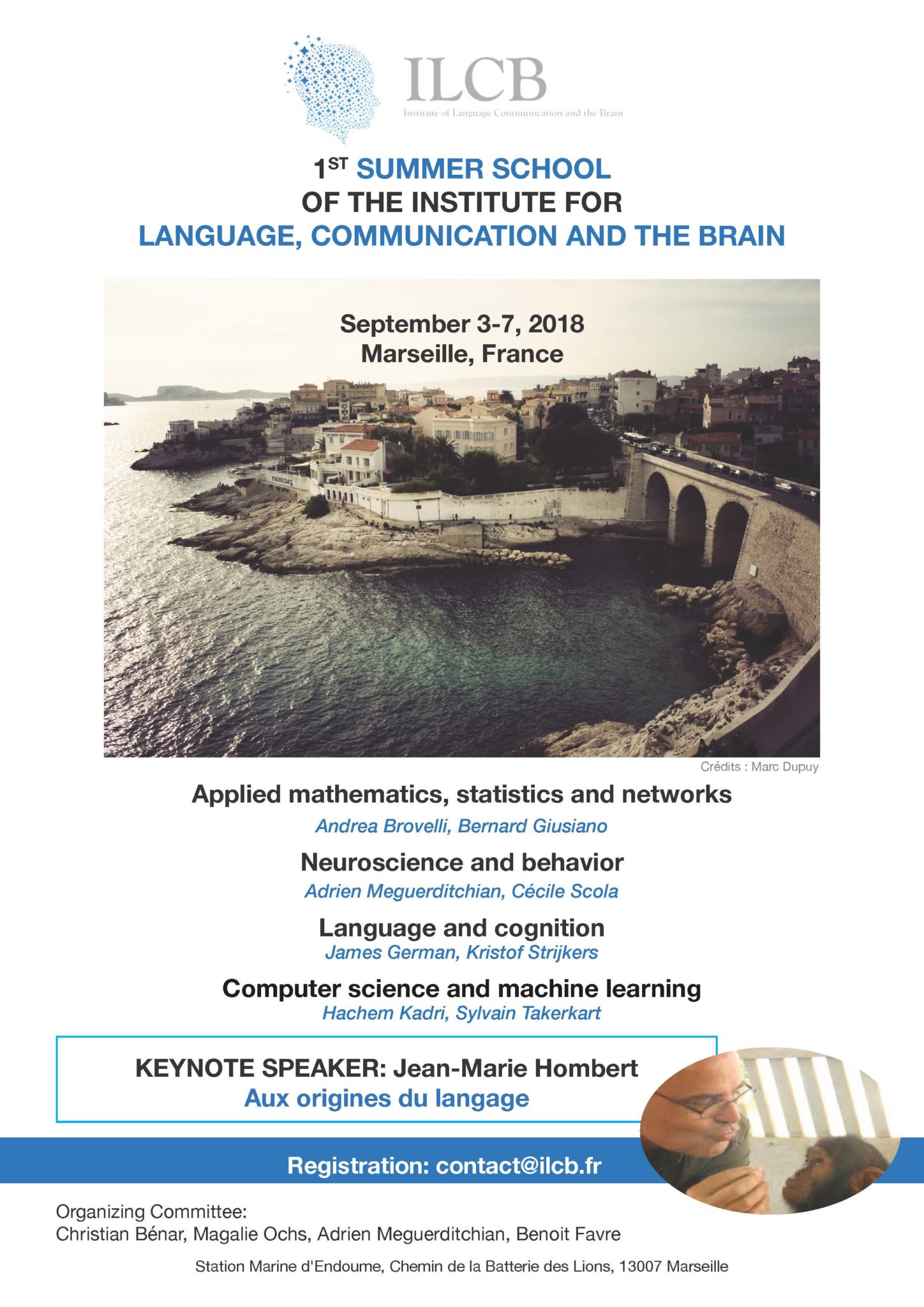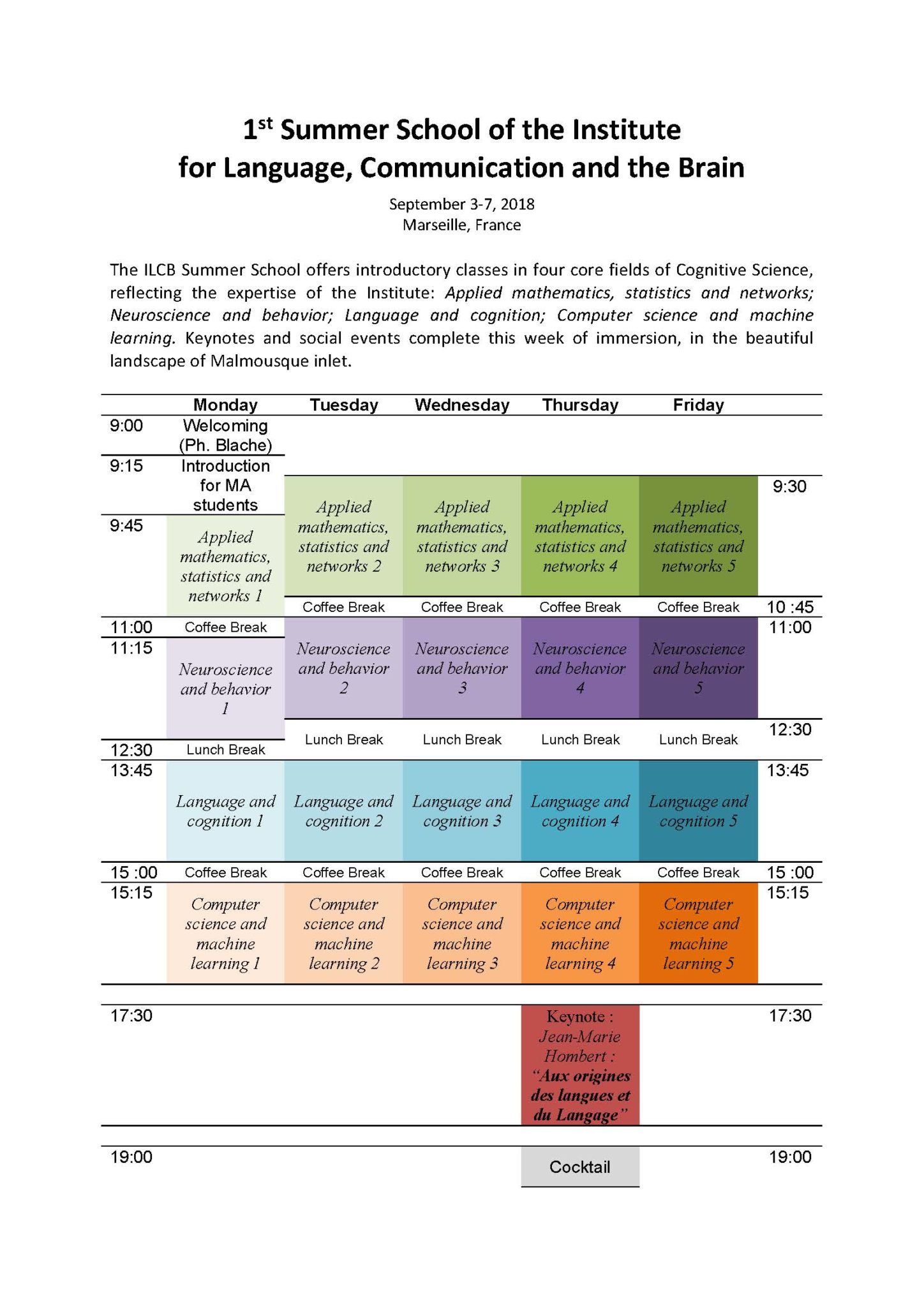
Download detailed program 1st_ILCB_SummerSchool_DetailedProgram a PDF

COURSES DESCRIPTION
- APPLIED MATHEMATICS, STATISTICS AND NETWORKS
Andrea Brovelli (Institut de Neurosciences de la Timone)
Bernard Giusiano (Institut de Neurosciences des Systèmes)
This course will introduce the mathematical tools for characterising brain networks in neuroimaging (in particular fMRI, EEG, MEG). In particular, we will review the theory of connectivity measures (e.g., granger causality, transfer entropy), the basic principles of statistical inference (linear regression, ANOVA with examples in R) .
- NEUROSCIENCE AND BEHAVIOR
Adrien Meguerditchian (Psychologie Comparée, Laboratoire de Psychologie Cognitive);
Céline Scola (Psychologie du développement, Centre PsyCLE
This course will explore the history of the study of behaviours in human and other animal species across diverses – and sometimes divergent – approaches including behaviorism, objectifist ethology, behavioral biology, sociobiology… We will develop the specific contribution of the emergence of cognitive science and neuroscience which clearly addressed the question of the mind in the understanding of the behavior. These aspect will be illustrated through (1) the first clinic cases which laid the first brain-behavior links as well as the foundations of neuropsychology and though (2) the significant behavioral methods used in psychology to infer and investigate the cognitive process with the example of developmental paradigms in infants.
- LANGUAGE AND COGNITION
Kristof Strijkers (Neurolinguistique, Laboratoire Parole et Langage)
James German (Linguistique, Laboratoire Parole et Langage)
This course introduces foundational concepts and theoretical frameworks from the field of linguistics, which addresses how language is structured, and in what sense the source of this structure lies in the mind of an individual language user. The course will be organized primarily according to the traditional subfields of linguistics, including phonetics, phonology, morphology, syntax, and semantics. Subsequently, it will explore a selection of modern theoretical frameworks which have the potential to bridge the gap between linguistic and neurocognitive perspectives on language. Regular discussions will address how linguistic structure ultimately links up with cognitive processes, as well as with the behavioral and neural measures that we use to study those processes.
- COMPUTER SCIENCE AND MACHINE LEARNING
Hachem Kadri (Laboratoire d’Informatique et Systèmes, LIS)
Sylvain Takerkart (Institut de neuro de la Timone, INT)
This course aims to provide an overview of problem solving and data modeling from a machine learning perspective. The concepts of data representation, distribution, statistics as well as training, validation and testing will be reviewed, as well as the details of some learning algorithms. Practical work will be performed on a concrete problem with standard tools, which will allow to see the basic concepts of programming in Python.
Keynote
Thursday 6th September
Jean-Marie Hombert, chercheur au CNRS, professeur de linguistique à l’Université Lumière -Lyon II, “Aux origines des langues et du Langage”
